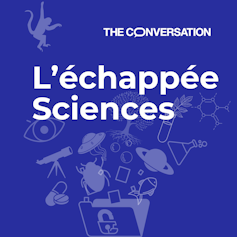

Discover the new podcast of The Conversation France: "L'échappée Sciences" . Twice a month, an original subject covered by an interview with a scientist and a column by one of our journalists.
Cracked soils, boats condemned to immobility, charred crops on their feet and, sometimes, not a drop from the tap… The effects of severe drought episodes are felt more and more clearly each summer in our latitudes. A situation that scientists have clearly identified as one of the consequences of global warming.
In the years to come, our temperatures will increase on average by at least 1.5°C, with obviously very marked regional variations. Both "victim" and "culprit", the agricultural sector, which contributes a significant part to greenhouse gas emissions, will have to adapt to this situation, new for certain parts of the globe, already well known for others .
To continue to be able to cultivate and ensure food security for populations, understanding how plants can adapt to a lack of water is becoming a priority. "Growing plants without water is science fiction!" reminds us of Delphine Luquet, ecophysiologist at CIRAD. This scientist, who has worked on sorghum and rice, is the guest of this new episode of "L'échappée Sciences".
With Delphine Luquet, we are therefore going to discover what water does to plants and what plants do with water. How some plant species withstand water stress better than others, like the millet family, cereals present in the Sahel for centuries. And how scientists and farmers can make plants less vulnerable to drought , by working in particular on varietal selection and changing practices in an agroecological approach.
On the menu of the chronicle of this new episode of "L'échappée Sciences", we are interested in a promising technique allowing us to better understand the genetics of plants: CRISPR-Cas9. These “molecular scissors” make very fine editing of the genome possible. If this technique is not authorized in the fields in Europe, where the edited plants are classified as GMO, it already exists in Japan where modified tomatoes have recently been marketed as "nutraceuticals"...
Good listening !
Credits: Animation and design, Jennifer Gallé and Benoît Tonson. Directed by Romain Pollet. Credits music: “Chill Trap” by Aries Beats. Excerpt from "Insterstellar" , a film by Christopher Nolan (2014).
Delphine Luquet , Ecophysiologist, CIRAD ; Benoît Tonson , Head of Science + Technology, The Conversation France and Jennifer Gallé , Head of Environment + Energy, The Conversation France
This article is republished from The Conversation under a Creative Commons license. Read the original article .
